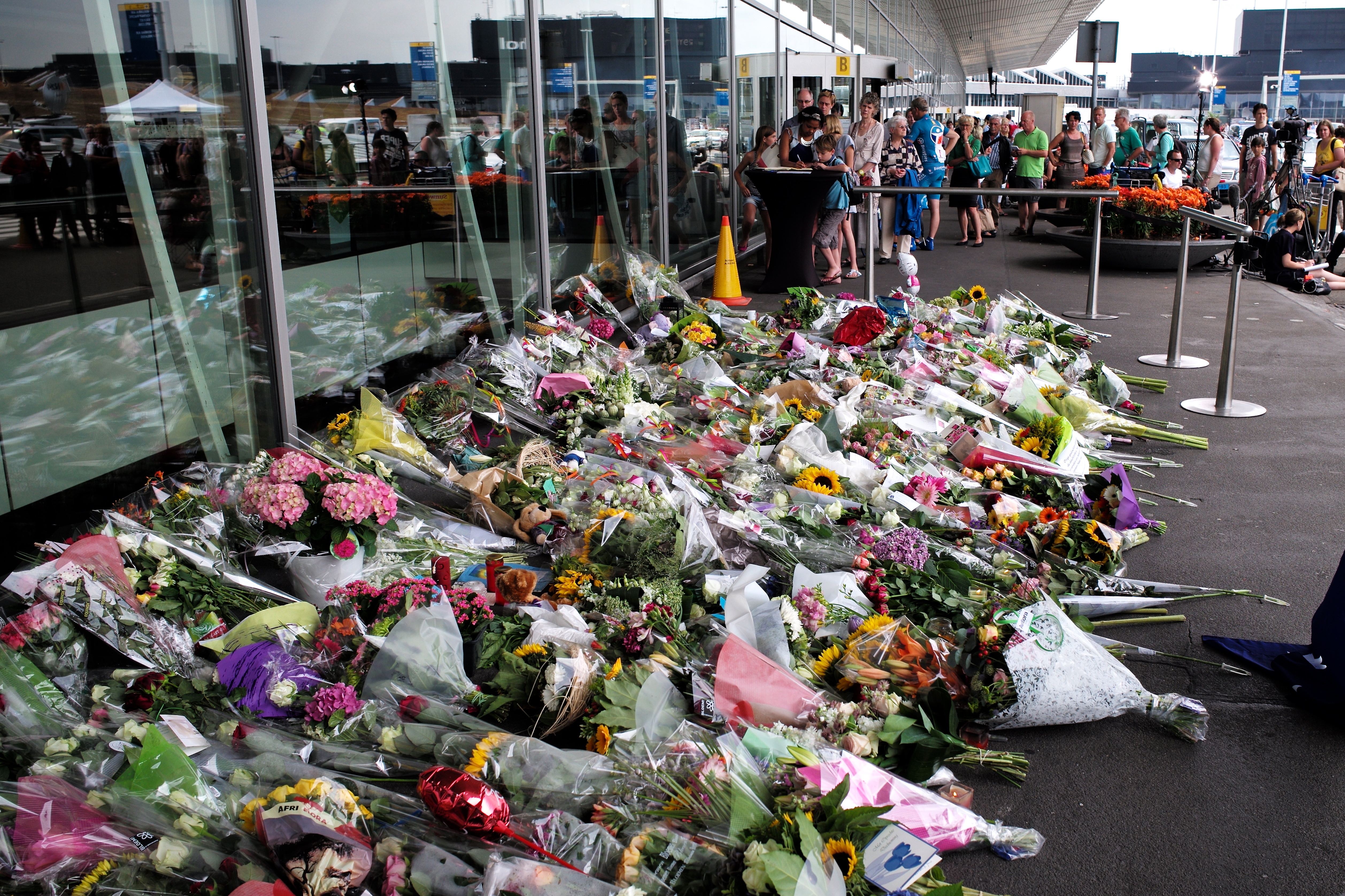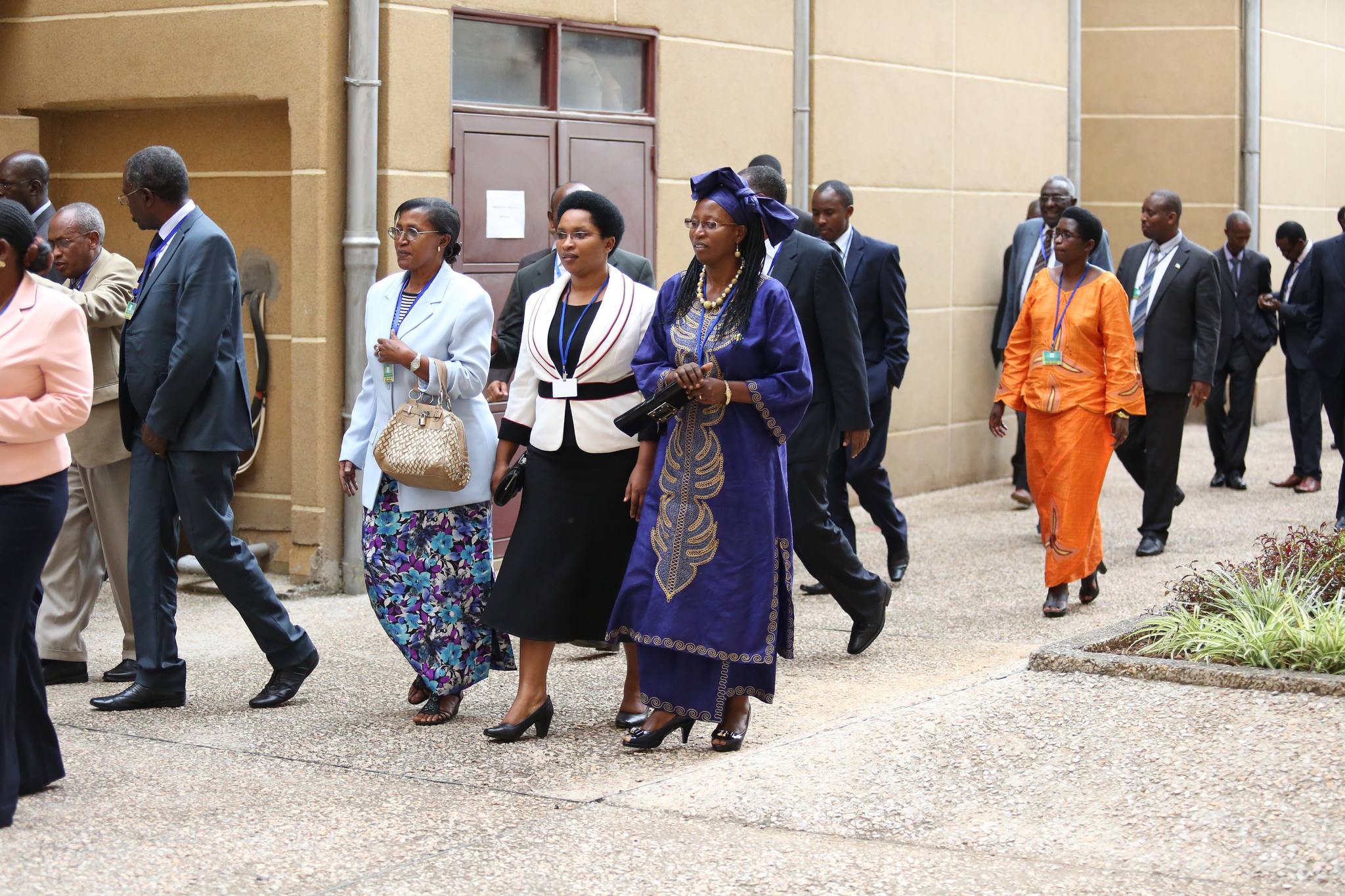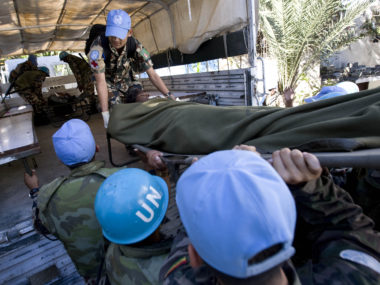By Celestino Perez, Jr. for Denver Dialogues
General Mark Milley, the chief of staff of the U.S. Army, offers direct guidance to his soldiers: “Our fundamental task is like no other—it is to win in the unforgiving crucible of ground combat. We must ensure the Army remains ready as the world’s premier combat force. Readiness for ground combat is—and will remain—the U.S. Army’s #1 priority.” This guidance invites a series of questions—important to soldiers, democratic citizens, and noncombatants—about the right relation between ground combat and the political outcomes that ensue.
The soldier’s charter is “to win,” but what does winning mean? Is winning in ground combat sufficient? Did the U.S. Army not demonstrate mastery in ground combat during the conventional, interstate war that toppled Saddam Hussein’s regime in 2003…resulting in a prolonged bout of strategic discontent? Is the military professional’s sole task to cultivate and exercise proficiency in ordnance delivery (i.e., winning in the crucible of ground combat)? Does not winning—as a strategic priority—entail also a concern for strategic and political outcomes? Daily headlines and war’s human toll render this line of inquiry obligatory.
I do not contest the substance of General Milley’s priority. I do encourage military leaders to attend closely to his words, especially insofar as his stated priority applies explicitly to the Army as a combat force. My point is that the top priority for the Army as a combat force cannot become the sole intellectual priority for the military professional. Although a combat force exists to prevail tactically on the battlefield, the military officer has a professional and ethical obligation to cultivate and exercise strategic (and, thereby, political) acumen. Put otherwise, the military professional’s expertise must extend far beyond ordnance delivery.
In War’s Ends: Human Rights, International Order, and the Ethics of Peace, Robert Murphy, a philosopher and just-war theorist, has revised the just-war tradition’s categories in two ways that should be of interest to policymakers, military professionals, and military educators. First, the traditional interpretation of the jus in bello criterion of “right intention” requires a political leader who decides to wage war to be inwardly motivated by a war’s just cause. Murphy instead interprets the right-intention criterion to require political leaders to establish sufficiently detailed and feasible political aims that enable generals and admirals to craft realistic strategies for their attainment. Second, whereas traditional just-war theorists posit—somewhat vaguely—that a just war must have a reasonable probability of success, Murphy argues that the criterion obliges political and military leaders to craft feasible military strategies. Implicit in these criteria is the obligation policymakers and military leaders have to confer with each other.
Murphy’s pragmatic revision of just-war theory foregrounds the notion that war is a political act. Although some scholars have emphasized the prominence of war’s economic and criminal dimensions, Murphy’s stance on the relationship between war and politics aligns with the writings of Sun Tzu, Mao Tse-Tung, Antoine Henri de Jomini, and Carl von Clausewitz, each of whom affirms the primacy of the political.
For Sun Tzu, “War is of vital importance to the State,” and “Victory is the main object in war.” For Mao, “The Chinese Red Army is an armed body for carrying out the political tasks of the revolution.” For Jomini, it is the statesman who “concludes whether a war is proper, opportune, or indispensable, and determines the various operations necessary to attain the object of war.” For Clausewitz, “If we keep in mind that war springs from some political purpose, it is natural that the prime cause of its existence will remain the supreme consideration in conducting it.” Moreover, “the political aim remains the first consideration. Policy, then, will permeate all military operations, and, insofar as their violent nature will admit, it will have a continuous influence on them.”
The mantra that war’s destruction has a political aim is well-known among military professionals. One might say that the mantra is by now an unexceptional and, really, trite expression. Yet, I suggest, the mantra’s wording is more known and repeated than understood and appreciated, and this state of affairs obtains because politics is insufficiently understood and appreciated. My argument is that (i) war is largely, but not exclusively, a destructive act, (ii) politics is largely, but not exclusively, a constructive act, and (iii) political construction is not wholly an engineering, step-wise endeavor. Although there is such a thing as engineered destruction, there is no such thing as a wholly engineered politics.
I take for granted that Sun Tzu, Mao, Jomini, and Clausewitz are right insofar as the military’s lethality and destructiveness must be subordinate to political aims. This right notion is found also within the U.S. Army’s doctrinal manuals, which instruct that ground forces exist “to create the conditions for favorable conflict resolution.” Moreover, Army forces “must possess the capability to translate military objectives into enduring political outcomes.” Yet the subordination of war’s destruction to political aims is not a scientific law. The subordination is—as Rene Girard’s novel, theological reading suggests—a normative claim. One might even posit that the right relation between war and politics is a hope. The subordination of violence to politics is contingent, which means it could be otherwise. And this ineluctable contingency is likely the reason Sun Tzu, Mao, Jomini, and Clausewitz go to such rhetorical efforts to render the subordination seemingly lawlike, essential, fixed…although it is certainly not.
War entails the intentional killing of persons and the destruction of things. Political leaders unleash violence against persons and things in order to produce a world that is in greater accord with political and military leaders’ desires. War is the political and military reproduction of the world via killing and destruction. Put otherwise, war’s violence is instrumental. Much of politics is instrumental too. Yet Politics, understood as as a creative and uncertain venture, is not.
Hannah Arendt famously distinguished between Work on the one hand and Action and Speech (which compose Politics) on the other. Work entails instrumental violence of a kind. In work, human persons create the artifacts that render our daily lives predictable. A person awakens in a familiar bed, sits at a familiar breakfast table, drives a car whose seats and mirrors conform to her physical requirements, and enters a familiar building and office whose furnishings and knick-knacks are unsurprising and, thereby, comforting. These familiar things come into being via Work’s fabrication, which entails two sorts of violence. Fabricators must, first, extract raw materials from the earth, and, second, they must shape and assemble these raw materials into the artifacts with which we are familiar.
Work entails instrumental violence directed to nature and raw materials. Work is instrumental because the fabrication of artifacts unfolds according to a blueprint. But Action and Speech are not instrumental activities. Action and Speech have no predetermined, tangible, preordained end. Human persons do not design the outcomes of Action and Speech. To act, explains Arendt, “in its most general sense, means to take initiative, to begin…to set something in motion.” Moreover, Action and Speech are always communal events: “In acting and speaking, men show who they are, reveal actively their unique personal identities and thus make their appearance in the human world.” Since Speech and Action dissipate as they occur, only remembrances via written and spoken stories can give them some permanence.
War’s logic, as Clausewitz instructs, comprises spiraling, amplifying violence. Violence, unfettered by the restraints of political aims, is Absolute War. The logic of Arendtian Politics is altogether different. Politics entails persons, in community, taking initiatory action for some purpose whose precise institutional and meaning-laden fulfillment can neither be known nor controlled by anyone beforehand. Social movements and political revolutions (including the American Revolution) are archetypal instances of Arendtian Politics.
What significance does Arendt’s distinction between Work and Politics (i.e., Action and Speech) have for policymakers, military leaders, and military educators? Generals who engage in war and fabricators who perform Work are alike insofar as they commit instrumental violence by design. Just as the carpenter does violence to a tree and its wood to produce a chair, so to do generals and admirals apply violence to earth, enemy flesh, and infrastructure to fulfill a higher commander’s intent. Hence, policymakers and military leaders who wage war partake partly in war’s logic, but—so long as political restraints obtain—not absolutely. Policymakers and military leaders also partake in Politics (i.e., in Action and Speech) insofar as they begin something new. Indeed, war’s initiation unleashes forces that—via self-organization, emergence, and feedback—render fabricated, engineered outcomes illusory.
The foregoing point is crucial…and overlooked. War’s violence invariably creates some degree of political disorder. It is seldom the case that war’s victors can give no thought to mitigating—by applying institutional remedies—the disorder they have wrought through violence. At the very least, war’s victors must wonder about the degree to which the disorder they have wrought will engender unintended consequences in, say, twelve or twenty-three years. If order is to emerge from disorder, a degree of Politics (i.e., Action and Speech) must occur. Persons will have to disclose themselves to others through deeds and words. These disclosures cannot be purely rent-seeking endeavors if they are to be hygienic and sustainable. Of course, Absolute Politics, like Absolute War, is unlikely. But some degree of Arendtian Politics will have to emerge if a war’s resolution is to be palatable, enduring, and locally produced.
It is this nexus between war’s destruction and politics’ construction that the classic and contemporary texts of strategy and war neglect. In Arendt’s terms, Politics (unlike war’s destruction) is not an “in order to” engineering project; it is instead a “for the sake of” exercise in collective action. Although war’s destruction has some chance of being (at least partly) engineered via strategy, military decision-making processes, and rehearsals, Politics’ construction depends to a significant degree on luck and hope. Durable polities, if they emerge at all, do so in the wake of an unpredictable yet fortunate confluence of institutions, exogenous structures, and meaning-laden narratives and practices. This observation holds for all military interventions that leave destruction in their wake. Generals and soldiers—who invariably occupy those interstices between war’s destruction and politics’ construction—must accept their role in facilitating Arendtian moments of political instantiation. Generals and soldiers in these situations are no longer principally engaged in will imposition; they instead serve as facilitators of political space and restrained cooperators during crucial but evanescent moments of political creativity.
Policymakers, senior leaders, and military educators have neglected the political requisites of war. If the gap I’ve identified in theorizing about war is valid, the implications for military education are jarring. Current and former military leaders have spoken explicitly about the need for military professionals to understand the circular, causal connections between a military’s actions on the one hand and local sociopolitical, economic, and cultural dynamics on the other. Assuming that war’s complexity is scale-free, military leaders at all levels must cultivate the ability to recognize, at the ground level, when Arendtian political moments are possible, aborning, or slipping away.
Waging war—from destruction through construction—requires a causal understanding. Military professionals must cultivate causal literacy about not only ordnance delivery, but about sociopolitical, economic, cultural, and ethical dynamics as well. The military professional, whether she is advising a battalion commander or the president, cannot limit her advice to proffering courses of action for the destruction or killing of a target. She must also proffer an assessment of how the destruction and killing will affect the prospects for tactical and strategic success. It follows that military expertise extends beyond ordnance delivery. It requires, as an ethical imperative, the cultivation of political and causal literacy to the degree necessary to imagine and assess potentialities to the left and right of the boom.
General Milley’s focus on readiness and winning in ground combat is certainly well placed. A military unit that cannot deliver ordnance effectively is useless. But the chief’s focus for the Army as a combat force cannot be the military leader’s sole intellectual and ethical focus. A 2012 Joint Staff report found that the U.S. military’s number-one shortcoming during this century’s first decade of war was “a failure to recognize, acknowledge, and accurately define the operational environment,” including “not only the threat but also the physical, informational, social, cultural, religious, and economic elements of the environment.” Military leaders must reflect upon this shortcoming…and fold this reflection into thinking about war as a destructive and constructive endeavor. Military leaders must do this cognitive, strategic work even as they train units to prevail in ground combat.
Military educators too must rethink—in bold and radical ways—how best to improve causal literacy. The requisite boldness and imagination—apart from rhetoric—has yet to appear on the horizon. This deficit should prompt a discussion within the profession of arms and our wider public sphere.
Celestino (“Tino”) Perez, Jr., PhD, is an active-duty colonel in the United States Army currently assigned to U.S. Army North in San Antonio, TX. The views herein are the author’s own.







4 comments
The difference here is between the idea of the military as a national or local defense force, whose job is merely to keep out invaders and suppress insurrections, and an imperial force, whose job is to conquer and administer the world (or as much of it as can be seized). Except for civil wars, the first kind of military does not need to do more than win — they should be able to assume that when they win, the civilians will be able to take over, because they are their own civilians. Empire is much more difficult and may require genocide, ethnic cleansing, population transfers, concentration camps, terror, nation-building, nation-destruction, colonization, and so forth, all of which must be informed and judged by sociological experts.
Wow, very interesting, again.
Generals and soldiers—who invariably occupy those interstices between war’s destruction and politics’ construction—must accept their role in facilitating Arendtian moments of political instantiation. Generals and soldiers in these situations are no longer principally engaged in will imposition; they instead serve as facilitators of political space and restrained cooperators during crucial but evanescent moments of political creativity.
That sounds like a pretty controversial concept. To begin with, recognizing that victorious armies find themselves, for a short but crucial time, as the de-facto powers in these wide-open transitional moments when political structures are created, is a huge insight. But where to go from there? I’d imagine a lot more thought is needed before encouraging the military to embrace a role as facilitators of political creation. Quite the opposite, traditionally, in principle, and for good reason, I think.
Military professionals must cultivate causal literacy about not only ordnance delivery, but about sociopolitical, economic, cultural, and ethical dynamics as well.
If policymakers who send the military on its way don’t (or can’t) take these angles into account before calling for action on a battlefield, it would certainly be helpful for the military to do so. But in the context of the theme of this article, this is again a unconventional, and rightly so. If there is a repeated need for the military to enter (foreign) politics, even in an ostensibly neutral shepherd / bootstrapper / protector-of-the-process role, what that really means is there’s something (something big, actually) missing in the world of statesmen. If there was ever a function for international institutions, this is it.
Another excellent post. I agree wholeheartedly with your major conclusions even if I harbor doubts on the path to reaching them.
“Although a combat force exists to prevail tactically on the battlefield, the military officer has a professional and ethical obligation to cultivate and exercise strategic (and, thereby, political) acumen. Put otherwise, the military professional’s expertise must extend far beyond ordnance delivery.”
According to 1961 Army-sponsored research from Johns Hopkins, Dyer et. al in The Developing Role of the Army in Civil Affairs concluded military governance, what I think is essentially synonymous with what you call a constructive political act, was a historical, if unwelcome, mission of the Army. Dyer et. al quote a WWII training manual “”… the fairest criticism is perhaps that America as a whole had not yet learned the lesson that the primary mission of military government is not technical but political: that military government is both the instrument and the creator of foreign policy.” The military decision to get out of the political business was quite deliberate, as the Cold War made “unlikely that this requirement will arise in the context of the present world situation except with regard to either the USSR or China”. Dyer et. al continue on the irrelevance of military governance because “today the US posture overseas is not one of being on foreign soil by right of conquest, or in defense solely of US interests. Basically, US military forces are overseas at the request of foreign powers, or by agreement with them in terms of mutual, security.” These assessments were undoubtedly welcome music to military ears which, as far as I can surmise, unilaterally declared it a State Department mission, an idea actually codified with NSPD 44 in 2005. The idea of a military endstate distinct from the political endstate (objective), such as the work of Arthur Lykke, has been taught to generations of American officers.
“Murphy instead interprets the right-intention criterion to require political leaders to establish sufficiently detailed and feasible political aims that enable generals and admirals to craft realistic strategies for their attainment. Second, whereas traditional just-war theorists posit—somewhat vaguely—that a just war must have a reasonable probability of success, Murphy argues that the criterion obliges political and military leaders to craft feasible military strategies.”
I am unfamiliar with Murphy’s work, but I am skeptical many states wage war, at least involving offensive operations, they do not believe have a reasonable chance of success. That the prognostications are incorrect would hardly make them immoral. This looks more like a formula for political second guessing than a practical criterion. I also think there would be real limits, especially for democratic politicians reliant on votes, for additional public specificity for war aims. Although it may simply be a matter of degree, would not a politician want some flexibility for conflict settlements?
“Indeed, war’s initiation unleashes forces that—via self-organization, emergence, and feedback—render fabricated, engineered outcomes illusory.”
Are you perhaps overstating the differences between war and politics when it comes to engineering resistant chance outcomes? Perhaps the destructive acts are more predictable than the political outcomes, but that is a debatable proposition. I think both are subject to calculation, design, probabilities, and chance. I found Kaylvas’ rationality arguments compelling in The Logic of Violence in Civil War.
“Military educators too must rethink—in bold and radical ways—how best to improve causal literacy. The requisite boldness and imagination—apart from rhetoric—has yet to appear on the horizon.”
Absolutely.